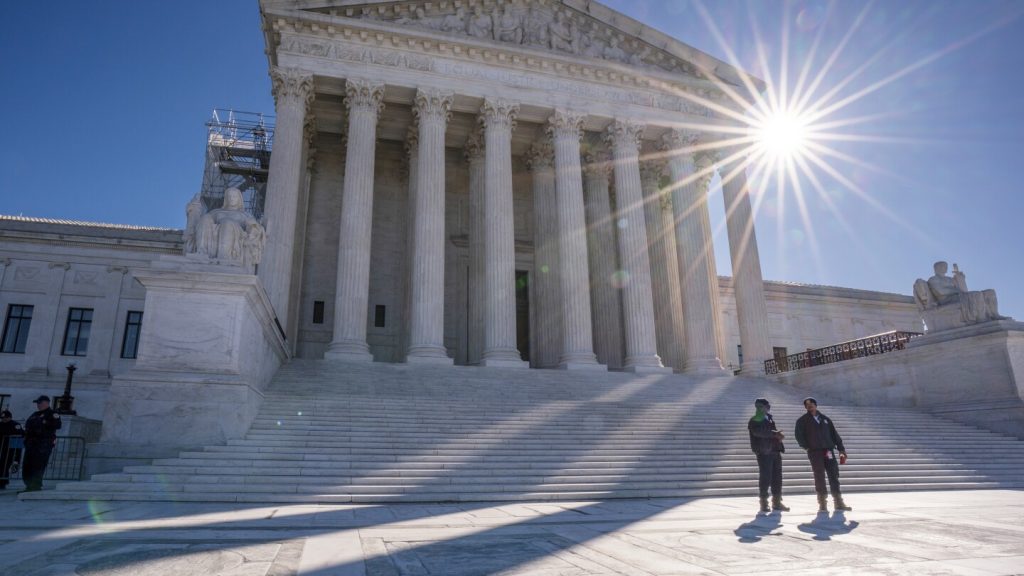The Supreme Court is currently facing a significant decision regarding whether former President Donald Trump must stand trial on criminal charges related to his alleged efforts to overturn the 2020 election results. Three justices appointed by Trump, as well as two others appointed by Republican presidents, are involved in the case. Despite calls for recusal over questions of impartiality, the justices have not stepped aside.
The court’s credibility is at stake as it considers these cases, as a decision favoring Trump could further damage its reputation. The potential for a divided court based on ideology raises concerns about the integrity of the outcome. Trump has already benefited from the court’s decision to intervene in the case, delaying a trial that was scheduled to begin in March and possibly allowing him to avoid standing trial before the November election.
The delay in issuing a decision has raised questions about the court’s motives and the appearance of playing politics with its timing. The case has parallels to the Watergate tapes decision in 1974, where the court ruled against President Nixon’s assertion of immunity, emphasizing the importance of presidential accountability in the judicial system. Special counsel Jack Smith has suggested that the current court could act with similar speed and purpose in the immunity case.
The Supreme Court’s handling of other major cases this term, including those related to Trump’s actions following the 2020 election, has shown a willingness to make swift decisions. The upcoming decisions on the immunity case, as well as cases involving abortion, guns, social media, regulatory power, and the environment, will further shape the court’s reputation and credibility. The resolution of the Jan. 6 case, along with these other critical decisions, will be closely watched for their impact on the court’s integrity.


